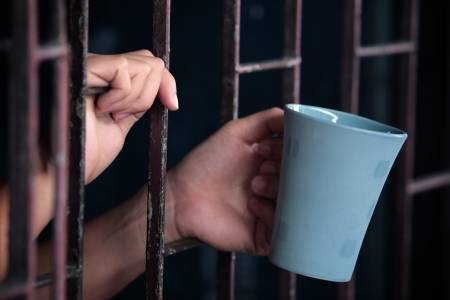This past summer it was reported that water cuts had been arranged by authorities at Bahrain’s notorious Jau Prison. Prison authorities deliberately withheld water from detainees for up to four days, and often throughout the hottest days of the summer. The water cuts started on 9 July 2018, which was recorded as the second hottest July in Bahrain since 1902, with temperatures reaching 45 degrees Celsius (113 degrees Fahrenheit).
During these reported water cuts, prisoners were given one cup of drinking water a day and were frequently forced to drink sink or toilet water. Occasionally the bathroom water was also cut and detainees were unable to shower – leading to worsening sanitary conditions and increasing the chances of disease outbreak. Prisoners at Jau already suffer from poor conditions, with the prison being overpopulated – the official numbers being 34 percent over capacity. It has been reported that cells supposed to house six prisoners are fitting up to 12, meaning that without water and proper hygiene the spread of diseases is imminent. Overall, the conditions at Jau Prison in Bahrain are in violation of international detention standards.
Three UN Special Rapporteurs focusing on physical and mental health, torture, and safe drinking water have reached out to the Government of Bahrain about concerns surrounding prison conditions in the kingdom. The UN Special Rapporteurs referenced the International Covenant on Economic, Social and Cultural Rights (ICESCR) that Bahrain ratified in 2007. In this treaty, article 11 “recognizes the right of everyone to an adequate standard of living, including food and housing, and to the continuous improvement of living conditions.” The Special Rapporteurs also cited the UN General Assembly Resolution 64/292 and the Human Rights Council Resolution 15/9, both stating that it is a human right to have access to clean water. The UN Special Rapporteurs listed additional rules and comments pertaining to the access of water, and then requested the Bahraini government provide information relating to these reports of water cuts.
On 11 September 2018, the UN Special Rapporteurs received a response for their request for more information from Government of Bahrain on the water cuts. Bahrain noted the Office of the Ombudsman visited the Jau Prison and concluded that there had been no water cuts. The report claimed that there was weak water pressure due to excessive use during hot days, as well as prisoners wasting water by keeping faucets open.
Evaluations from the Office of the Ombudsman lack independence and therefore dispute the accuracy of their claims. The UN Committee Against Torture has previously condemned the Office of the Ombudsman, noting the body is biased and ineffective. The case of Hassan Mushaima is another prime example of the Ombudsman’s false claims. Though the Ombudsman continues to claim otherwise, Hassan has been repeatedly denied unrestricted access to cancer screenings and has not seen a medical physician or regularly received medication for his diabetes and high blood pressure. The weight of evidence shows that the Office of the Ombudsman’s findings are erroneous and they are unable to fulfil their mandate properly.
Detainees at Jau Prison suffer from cramped conditions and inadequate access to health care, and now are being denied the most basic necessity, water. Their conditions continue to deteriorate and the Bahraini government insists on ignoring or denying the situation. As a new member of the Human Rights Council, Bahrain needs to be held to the international treaty standards that the UN Special Rapporteurs listed in their communications with Bahrain. The Office of the Ombudsman’s findings should not be accepted as de facto and there should instead be an independent investigation team sent to look into the conditions in Jau Prison and produce an unbiased report.
Caroline Hickey is an Advocacy Intern with ADHRB





